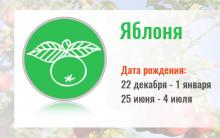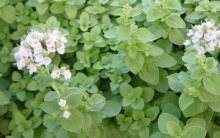Integrated speech therapy lesson in senior group for children with OHP. Theme: "Goodbye Summer"
Description: This summary of the lesson was developed for children with OHP on the topic "Summer". Designed for teachers - speech therapists, educators preschool institutions working with children with THD, parents.Target: enrich children's knowledge on the topic "Summer".
Tasks:
- to develop in preschoolers articulatory motor skills, smooth and prolonged exhalation, auditory attention, visual attention, onomatopoeia, thinking, fine and general motor skills, coordination of speech with movement; sense of rhythm;
- introduce the generalizing concepts of "Summer", "Insects", "Flowers";
- to teach the ability to form singular and plural nouns;
- to teach the ability to coordinate their actions with the actions of other participants in the game.
Equipment: Presentation "Summer", subject pictures on the topic "Flowers", "Insects".
Handout: colored drops.
Lesson progress:
Speech therapist: Guys, who knows what time of year it is? (Summer)
Very soon summer will end and come ... (Autumn)
Guys, let's get on the train and go say goodbye to summer.
(Children stand one after another and begin to move, repeating after the speech therapist with the desired intonation, highlighting the stress:
Choo-choo- choo, Choo-choo- choo, Choo-choo- choo!
Chuh-choo-choo, Chuh-choo-choo, Chuh- choo-choo!
That- That! Here at! That- That!
That-Tu-Tu! That-Tu-Tu! That-Tu-Tu!
Speech therapist: Go to your chairs and look at the blackboard. (pictures on this topic are exhibited)
Guys. What did we do in the summer? (We swam, sunbathed, went to the forest for berries and mushrooms, picked flowers, caught butterflies ...)
What flowers grow in the summer in a clearing, in a meadow? (Pictures are exposed)(Daisies, cornflowers, bluebells)
And in the garden? (Lilies, roses, phloxes)
Speech therapist: Let's play the one-to-many game
One daisy, many daisies
One cornflower - many cornflowers,
One bell, many bells. (Lily, rose, phlox)
Speech therapist: I suggest smelling how the flowers smell.
We inhale deeply with a nose, and on exhalation we say: “Oh, how it smells”
(Children take turns doing breathing exercise smelling flowers)
Speech therapist:"ZZZZZZZZZZZZZ" Oh! Who is it flying? (Mosquito) Smile, make teeth together and repeat how he sings his song.
Speech therapist:"Zhzhzhzhzhzhzhzhzh" And who is now singing a song? (Bug).
Make the teeth together, pull the lips forward with a tube and repeat how the beetle sings its song.
(The speech therapist monitors the position of the organs of articulation without correcting the pronunciation of children).
Speech therapist: Goodies. You are doing great!
What insects can still be found in summer? I will give you riddles, and you will try to guess them.
Not for fish, but for setting up nets.
(Spider)
In appearance, of course, smallish,
But everything that is possible is dragged into the house.
Reckless boys-
Their whole life is connected with work.
(Ants)
Above us - upside down,
Walk, don't be afraid
Nobody is afraid.
(flies)
There is a warrior
Digs the earth
And he howls.
(Bug)
Where it is sweet, there she circles,
Like a bee.
She stings and buzzes like a bee.
And gets into compote,
Like a bee
That's just honey does not give,
Like a bee.
(Wasp)
Physical and musical break.
Game: "Butterflies and flowers"
Speech therapist: Now we will turn into butterflies and fly, flapping our wings while the music is playing, as soon as the music stops, each butterfly "sits on a flower." The butterfly that gets the last flower wins.
Musical director. Guys, did you go to the forest in summer? What were you doing there? And what do you need to shout if you get lost in the forest? (OW!)
Let's and we will loudly shout AU and help with our hands. To the sound A, we will open our mouth wide and unclench our fingers on the palms, and to the sound U, we will pull the lips forward with a tube, and pull the fingers on the handles forward.
(Musician and speech therapist show movements, children repeat)
Children sit in the "clearing", they are given "droplets"
The music director plays the melody of rain.
What do you think the music is like? (For the rain).
Game: "Count and show"
Let's count how many times a drop of rain hits, and then put the same number of droplets (the musician plays, saying: “Drip!” From one to three. Children count “droplets” and lay out the right amount)
Musical director. Guys, I suggest you play the game
"Sun and Rain" When the sun shines, do we have a cheerful or sad mood? (Cheerful).
And when it rains, the mood...? (Sad).
Children, when cheerful music will play, we will dance, frolic merrily. And when the sad music starts, you should all hide under a big umbrella.
Speech therapist. Our journey has come to an end, it's time to say goodbye to summer. Let's all say together: “Thank you, summer! Goodbye, Summer!"
Prepared and conducted by: Volkova Arina Anatolyevna, teacher - speech therapist MBDOU No. 83 "Star" Astrakhan
Task: to summarize the knowledge of children on the topic "Summer" using a variety of approaches and methods.
Target:
- Development of speech perception (auditory attention and speech hearing), including its components - phonemic, rhythmic hearing, voice power.
- Development of the speech motor apparatus (articulation, voice, speech breathing) and the formation of the pronunciation side of speech (pronunciation of sounds, clear diction).
- Formation of a dictionary on the topic "Summer" , grammatical structure, coherent speech.
- Contribute to the development of emotional-volitional and cognitive processes of children.
- Use the expressive possibilities of fine arts to develop the creative potential of children, their self-esteem and self-expression.
Equipment:
- musical arrangement ("Forest Sounds" , etude "From Seed to Flower" )
- drawings of children (signs of summer)
- pictures - symbols "Gymnastics for the tongue"
- numbers from 1 to 5 according to the number of children
- pictures for the sounds S, Sh, R, L, depicted on the petals of daisies
- paints, straws from juice
- cardboard mushrooms
- mirrors for each child.
- pictures depicting the summer months.
Lesson progress
I. Organizational moment.
Soundtrack sounds "Forest Sounds" .
Speech therapist: Guys, where do you think we will go today?
Do you want to visit the forest?
Then let's go. How are we going to get there? We don't have a route!
(Knock on the door. The postman Pechkin enters)
Pechkin: Hello guys.
Speech therapist: Guys, did you find out who it is?
Pechkin: I heard that you are going to the forest. Can you find your way there?
Speech therapist: Yes, that's the trouble. We don't have a map.
Pechkin: I will help you. I have a letter from an old man - a forester, but I will not give it to you. Show me what you can do.
Speech therapist: Good. Come on guys, show Pechkin "The Tale of the Tongue" .
II. Articulation gymnastics "The Adventures of Tongue" . (see Attachment)
Sh. Introduction to the lesson.
Pechkin: Thank you guys for an interesting tale. But I won't give you the letter.
Guess - you tell me a riddle.
The sun bakes
linden blossoms,
Rye is ripening
When does it happen? (Summer)
(Pechkin gives the letter, says goodbye)
Speech therapist (reads letter)
Hello dear guys! I invite you to meet summer in the forest, see how beautiful and interesting it is here. And so that you do not get lost, I am sending you a route sheet.
The old man is a lumberjack.
(Speech therapist shows children a route sheet)
We go to the forest to meet the summer.
Speech therapist: We will go along the forest path,
Where, we don't know.
For raspberries? - For raspberries!
For mushrooms? - For mushrooms!
Golden sun shines
through the green windows.
Can we follow the sun?
What?
Maybe for the sun!
Maybe we'll get a butterfly
Maybe the hedgehog is waiting for us somewhere...
We will go in a merry crowd
On a clear morning
Welcome to the summer!
Speech therapist: Guys, what summer months do you know?
IV. Sound differentiation. The game "Collect a Daisy" .
The speech therapist opens the card and makes a riddle.
I was walking along the path,
I saw the sun on a blade of grass.
But not hot at all.
The sun's white rays. (Chamomile)
Children collect daisies in groups. (S - W, R - L)
Speech therapist: What wild, forest flowers do you still know?
V. Phys. minute. Etude "From Seed to Flower" .
(Quiet music playing)
Let's imagine that we are small flower seeds.
(sit in a ball, hide your head in your knees and cover it with your hands)
The gardener is very careful with the seeds, watering them, caring for them.
(speech therapist strokes the children on the head)
With a warm sun, the seed begins to grow slowly.
(children get up)
Its leaves open.
(hands reach up)
The stem grows.
(children rise on tiptoes)
buds appear
(hands to the sides, fingers clenched)
There comes a joyful moment and the buds burst
(fists open sharply)
The sprout turns into beautiful flower. Summer is coming, the flower is getting prettier, admiring itself
(children look at themselves)
Smiling at the flowers of the neighbors, lightly touching them with its petals
(fingertips touch neighbors).
VI. Rhythmiko - intonation exercise "Mushrooms"
.
The speech therapist makes a riddle.
Who sits on a strong leg
In brown leaves by the path.
Got a hat made of grass -
There is no head under the hat. (Mushroom).
There is a row of mushrooms on the flannelgraph. Children clap their hands to the right rhythm.
II-II-II-II-II-II
I-II-I-II-I-II-I
I-III-I-III-I-III
II-III-II-III-II
Speech therapist: What mushrooms do you know?
VII. The syllable structure of the word. Dividing words into syllables.
Speech therapist: What other words are associated with the word "summer" ?
The children divide the named words into syllables and raise a card - a number with the required number of syllables.
The speech therapist makes a riddle.
Lives without a body
Speaks without language
Nobody sees him
And he hears. (Echo)
Children stand in two rows facing each other. One group says a sentence based on the drawings about summer, the other quietly repeats only the last word of the sentence three times.
IX. Development of speech breathing and respiratory muscles. Blotography with a tube.
The speech therapist makes a riddle.
All four petals moved at the flower.
I wanted to tear it off, it fluttered and flew away. (Butterfly).
Speech therapist: Today we will try to draw a butterfly with a blot. (instruction given)
taken dense sheet paper, folded in half. The paint is diluted to a liquid state. Paint drips onto half of the sheet. A tube is taken, and the blot is blown in different directions. Now fold the paper in half, smooth it out, and then unfold it. It turns out a drawing. Consideration.
X. Summing up the lesson.
The game "Collect a Daisy"
Lexical theme: Summer.
Target: Clarification and consolidation of ideas about summer and its signs, expansion and activation of the vocabulary on the topic, development of coherent speech. (Slide 3)
Tasks:
Developing speech environment:
Continue to expand children's ideas about the diversity of the world around them;
Continue to develop speech as a means of communication;
Fix the names of the summer months, tree leaves;
Develop coherent speech and coordination of speech with movement;
To consolidate the ability to build a dialogue, develop general speech skills;
To form the skills of compiling a short descriptive story based on a series of plot pictures.
Vocabulary formation: (Slide 4)
Enrich speech with nouns, adjectives, adverbs, help children use words actively, correctly, in strict accordance with the meaning.
The grammatical structure of speech
Continue to improve the ability to coordinate words in sentences;
Practice using simple, compound sentences.
Improve the ability to use direct and indirect speech.
Connected speech:
Continue to improve the dialogical form of speech;
To teach according to the plan to talk about the subject, about the content of the plot picture, to compose a story from pictures with a consistently developing action;
Educational tasks (Slide 5)
Education of activity, initiative, independence, interest in the lesson;
develop the skills of teamwork, cooperation,
Sunny, clear sky, heat, sunshine, maple, oak, birch, linden, aspen, mountain ash, June, July, August, louder, warmer, greener, perseverance, goodwill;
To instill in children an emotional and aesthetic perception of their native nature in a poetic word, music and visual activity;
To develop the ability to act in accordance with the instructions.
Value: education for love native nature.
Dictionary activation: summer, long-awaited, bright, colorful, fragrant, tanning, swimming, beach, holidays.
Methodical methods:
verbal- conversation, questions, explanation.
Visual- demonstration of pictures, presentations.
Gaming- breathing exercises "Veterok", physical education "Guess where we were?" - coordination of speech with movement, didactic game "Which branch are the kids from?".
Practical- collective compilation of sentences for plot pictures, a descriptive story by one child.
Equipment: laptop, projector, basket, magnetic board, easel.
Demo material: presentation on the theme "Summer", a series of plot pictures.
Handout: leaves of oak, maple, aspen, birch, mountain ash, chestnut, the size of a child's palm, cut out of cardboard on strings. Preliminary work: learning the exercise “Guess where we were?”, listening and discussing the play “Summer” by A. Vivaldi, examining and discussing the painting by I. Levitan “ Birch Grove”, reading the story by K Ushinsky “In the forest in summer”.
Organization of the lesson: on the carpet, at the tables.
Lesson structure: (Slide 2)
1. Org. moment. Riddle guessing.
2. Announcement of the topic of the lesson, didactic game "Word on the palm of your hand."
3. Conversation about autumn. Fizkultminutka "Guess where we were?"
4. Didactic game "Whose branch are the kids from?"
5. Breathing exercises "Breeze".
6. View presentation. Compilation of a descriptive story "Summer".
7. Analysis of the word "Summer".
8. Summary of the lesson.
Lesson progress
1. Organizing time.
L: Hello kids. I'm very glad to see you. Now I will read you a riddle, and you guess the topic of our lesson:
All the hot sun bestowed,
Meadows covered in a colored outfit,
Walk, swim called,
Brought flowers and berries.
L: What time of year is the poem talking about?
D: - About the summer.
L: Why do you think so?
L: Name the summer months.
D: June, July, August.
L: Right. What is "summer"?
D: It's the season.
L: Right, but how else can you call it.
D: This is the time, the state of nature, this is the time after spring.
L: You see how differently you named summer. It's an amazing, fun time of the year. There's a lot to be said about summer. beautiful words, because it is different. What words do you know about summer? Throw it on my palm.
2. Game: "The word on the palm."
L:- Summer, what?
D: - Multi-colored, long-awaited, hot, warm, sunny, joyful, cheerful.
L: - How many beautiful words we said about summer. And what are the signs of summer?
- What can you say about the sun? (high in the sky, bright, burning, radiant).
What is the sky like in summer? (blue, clear, bright, cloudless).
What trees? (green, lush). What is the grass like in summer? (high, fragrant, soft).
What is the water like in summer? (warm, pleasant, refreshing).
What are the children like in summer? (cheerful, noisy, funny, joyful).
3. Physical education minute "Guess where we were?"
A cloud came running Thunder rolled | Running in circles on toes Three jumps |
Warm rain poured down | Running in a circle |
ringing silver | Jumping on toes |
Rang over us | Running in a circle |
And disappeared away | Jumping on toes |
Do not sit at home We went for a walk | Marching |
Don't forget to take a net | Marching, imaginary net on the shoulder |
Guess where we were? | Stop, shrug, shrug |
We were across the river, on the other side On a big fragrant water meadow | Change direction of movement |
Butterflies were caught And wove wreaths On fragrant hay Rest lay down | Lie on your back, relax |
4. Didactic game "Whose branch are the kids from?".
L: Guys, summer left us a basket, and there are leaves in it. Look how beautiful they are carved. Each of you will choose one leaf and say what tree it is from.
(Child: - This is a maple leaf. Maple leaf).
3. Exercise "Wind"
L: - Stand up straight, take a piece of paper by the thread, bring it to your lips, move it slightly away from your face. Now we have no wind at all. The leaves don't move.
Now take a breath, stretch your lips with a tube, blow on the leaf with a weak stream of air. The wind picked up a little. And now the wind is blowing hard.
L.:- Well done. Take your seats.
6. Children compiling the story "Summer" using the reference diagram (slide 6-13)
Grass, trees
· Insects
It has come ... .. (long-awaited summer). The sun shines brightly). The sky .... (blue with white clouds). Leaves on the trees .... (green), grass .... (fragrant). Birds ....... (cheerfully chirp). Guys ...... (swim in the river). In the meadow ... (many flowers). Fun ... (butterflies swirling).
7. Analysis of the word "Summer".
L: - Guys, what season did we talk about today? (about summer).
How many vowels are in the word summer? ( two)
How many consonants? ( two)
Name the number of syllables ( two)
· What rule do you know about the correspondence of the number of vowels and syllables? ( How many vowels in a word, so many syllables)
8. Summary of the lesson. There are sheets and colored pencils on your tables, I suggest you draw summer!
The recording of summer noises is turned on: forests, water, birds, etc.
Download:
Preview:
To use the preview of presentations, create an account for yourself ( account) Google and sign in: https://accounts.google.com
Slides captions:
Summer is a wonderful time
Lesson structure: 1. Org. moment. Riddle guessing. 2. Announcement of the topic of the lesson, didactic game "Word on the palm of your hand." 3. Conversation about autumn. Fizkultminutka "Guess where we were?" 4. Didactic game "Whose branch are the kids from?" 5. Breathing exercises "Breeze". 6. View presentation. Compilation of a descriptive story "Summer". 7. Analysis of the word "Summer". 8. Summary of the lesson.
Purpose: Clarification and consolidation of ideas about summer and its signs, expansion and activation of the vocabulary on the topic, development of coherent speech. Tasks: Developing speech environment: - continue to expand children's ideas about the diversity of the world around them; - continue to develop speech as a means of communication; - fix the names of the summer months, tree leaves; - develop coherent speech and coordination of speech with movement; - to consolidate the ability to build a dialogue, develop general speech skills; - to form the skills of compiling a short descriptive story based on a series of plot pictures.
Vocabulary formation: - enrich speech with nouns, adjectives, adverbs, help children use words actively, correctly, in strict accordance with the meaning. The grammatical structure of speech: - continue to improve the ability to coordinate words in sentences; - exercise in the use of simple, compound sentences. - improve the ability to use direct and indirect speech. Coherent speech: - continue to improve the dialogic form of speech; - to teach according to the plan to talk about the subject, about the content of the plot picture, to compose a story from pictures with a consistently developing action;
Educational tasks: - education of activity, initiative, independence, interest in the lesson; - to form the skills of teamwork, cooperation, perseverance, goodwill; - to instill in children an emotional and aesthetic perception of their native nature in a poetic word, music and visual activity; - develop the ability to act in accordance with the instructions. Value: education of love for native nature. Vocabulary activation: summer, long-awaited, bright, colorful, sunny, clear sky, heat, sunshine, maple, oak, birch, linden, aspen, mountain ash, June, July, August, louder, warmer, greener, fragrant, tan, bathing, beach, vacation.
IT HAS COME…. (long awaited summer)
The sun shines brightly)
The sky .... (blue with white clouds)
Leaves on trees ... (green), grass ... (fragrant).
Birds ... (chirping joyfully).
Guys…. (bathing in the river)
In the meadow .... (many flowers).
fun ... (butterflies swirl)
Elena Nikishova
Synopsis of the final integrated speech therapy session in the senior group "Hello, summer!"
Tasks: Summarize ideas about the changes that occur in nature in summer; activate the children's vocabulary on the topics: "Summer", "Insects", "Flowers"; improve the grammatical structure of speech in children (form nouns with diminutive suffixes, nouns in plural; agree adjectives with nouns in gender and number). To develop in preschool children auditory attention, coherent speech, visual attention, thinking, fine and general motor skills, coordination of speech with movement; work on the perception of rhythm;
to consolidate the skills of sound analysis;
to educate the communicative qualities of the individual: help and mutual assistance, hospitality, a sense of collectivism; to consolidate the ability to coordinate their actions with the actions of other participants in the game.
Region Integration: Cognition, Communication, Socialization, Health, Artistic development.
Equipment: subject pictures - train, cornflower, bell, dandelion, forget-me-not, chamomile, lily of the valley; dragonfly, mosquito, bee, spider, ant, beetle, caterpillar; painting "Summer"; ball; watercolor paints, albums.
Handout: napkin flowers - 13 pcs. for breathing exercises.
Lesson progress:
1. Organizational moment.
Speech therapist: Guys, let's repeat the rule of conduct in class.
Exercise "Rule of conduct in the classroom."
One, two, three, four, five -
We will now again:
Watch, listen, think,
But don't interfere with each other.
Clearly, speak clearly
Don't fidget, don't play pranks.
Speech therapist - Go to your seats and sit quietly.
- all attention to the board, look and listen:
The sun bakes
linden blossoms,
The rye is ripe.
When does it happen?
Children: Summer!
Speech therapist: Right! And when does summer come? (After spring).
Name the summer months. (June July August).
What signs of summer do you know? (It gets hot in the summer
there are warm rains, sometimes there are thunderstorms, you can see a rainbow, summer days the longest, and the nights are short, flowers bloom in the meadows, berries ripen, butterflies flutter, dragonflies fly, birds have chicks, adults take vacations and go to rest on the sea).
2. Ball game “Say with the word “summer”.
The speech therapist stands in a circle of children with a ball in his hands and says the words:
Months - ... (summer months).
Day - ... (summer day).
Weather - ... (summer weather).
Morning - ... (summer morning).
Night - ... (summer night).
The sun is ... (summer sun).
Thunderstorm - ... (summer thunderstorm).
Rain - ... (summer rain).
Flowers - ... (summer flowers).
Clothes - ... (summer clothes).
Vacation - ... (summer vacation).
Holidays - ... (summer holidays).
3. "Pick up signs."
What is the sky like in summer? - ... (Blue, clear, high).
What is the sun like in summer? - ... (Bright, warm).
What is the air like in summer? - ... (Clean, transparent).
What is grass like in summer? - ... (Green, juicy, high).
What are the berries in summer? - ... (Ripe, sweet, juicy).
4. Game exercise "On the road!"
Speech therapist: Summer is a time for traveling. Do you want to hit the road right now? - Guys, there is an electric train on the platform, we will go out of town on it. Let's take seats in the car and get ready for the journey, but while we are driving, let's agree on what we will call each other if someone falls behind. What does a man cry when he gets lost? Children-AU!
Speech therapist: -And we will call each other differently. Listen carefully and repeat after me:
VA-VO-VU; YOU-VA-VO; YOU-WA-WOO; VA-YOU-IN; IN-VA-YOU;
YOU-VA-VO; WOO-WA-YOU; WU-YOU-IN; WA-WOO-YOU; IN-YOU-VA.
5. Game: "Telegraphers"
See what's in your pictures. Let's find out how many syllables are in words - slap the number of syllables. (subject pictures with sound B, Bb)
So we arrived at the meadow!
6. Fizminutka - health self-massage "Sun":
And now we will rest, get up and do with me:
The sun rose early in the morning, (Raise hands up, stretch)
All the guys caressed:
strokes the breast, (Massage the breast in a circular motion.)
stroking the neck, (Stroking the neck.)
strokes the nose, (The wings of the nose are rubbed with the thumb from top to bottom).
strokes the forehead, (Run fingers along the forehead from the middle to the temples.)
strokes the ears, (Rubs the ears.)
stroking the hands, (Rubbing their palms.)
children burn. Here! (Raise hands up.) Good!
7. Game: "One-Many"(forest flowers on the board). Look how many beautiful flowers are here! I name one flower, and you - if there are many.
8. The game "Call it affectionately."
And we are not alone here! Who is hiding in the flowers? Of course insects. Name them affectionately! (Subject pictures are used.)
9. The game "Clap - stomp"
Listen to a poem about summer. If you agree with the expression - clap, if not - stomp.
Birds fly south in summer. Schoolchildren have holidays in the summer.
There are many berries in the forest in summer. Drops ring in the summer.
In the summer after the rain you can see the rainbow. It's hot in summer.
In summer, animals prepare for winter. January is the first month of summer.
10. Breathing exercise "Fragrant flowers"
Speech therapist: - How many flowers are in the clearing!
What do flowers smell like? Let's inhale the aroma of flowers through the nose, and exhale through the mouth.
And now it's time for us to go back to kindergarten!
11. Drawing "Dandelions"
Here we are in kindergarten. It was a good trip, let's draw dandelions so that parents can see what a beautiful clearing we visited.
Making an exhibition of drawings in the reception.
Related publications:
Synopsis of the final lesson in the senior group Implemented educational areas: " cognitive development”, “Social and communicative.
Synopsis of an integrated speech therapy lesson in the senior group using an interactive whiteboard Lexical theme: "Wild animals of our forests" Program content: 1. Consolidation of ideas about wild animals, their appearance,.
Abstract of an integrated lesson on the development of speech in the senior group "Hello, spring!" Purpose: to clarify and systematize children's ideas about spring changes in nature. Integration of educational areas: 1. "Knowledge".
Synopsis of an integrated lesson with the participation of parents in the first junior group "Hello, summer!" Purpose: to create an atmosphere of trust, the inclusion of each child in group interaction, to cause a positive emotional attitude towards.
Synopsis of an integrated lesson in the senior group for the development of speech "Hello, birch bark!" Purpose: to awaken the creativity of girls - to paint the fabric with ornaments and the imagination of boys - to make a scoop for water. Tasks: to consolidate the skill.
Synopsis of the frontal EMA for the development of speech using non-traditional drawing techniques on the topic "This is what our summer is like!" for children of senior groups of preschool educational institutions. Attached is a list of used literature and graphic materials.
Topic: Summer. Compose a story based on a picture.
Program content:
Educational Purpose: Teach children to write a story based on a picture.
Corrective Goals: Learn to coordinate adjectives with nouns in gender and number; expand vocabulary children on a given lexical topic, exercise in the formation of nouns with diminutive suffixes, in the use of present-tense singular and plural verbs.
Development goals: Develop connected speech logical thinking, imagination, general and fine motor skills.
educational goals : To cultivate the ability to bring the work started to the end.
Equipment: printed image of Boniface, summer-themed paintings depicting summer nature, plot paintings depicting summer holidays, a bright box, a ball, salt, summer-themed coloring books, gouache, brushes, non-spill glasses with water, napkins, oilcloths for tables.
Lesson progress:
Speech therapist: Children! Look who's visiting us today! Do you recognize this hero? (Boniface) That's right, this is a lion who goes to rest with his grandmother during the holidays. What season do you think is approaching if Boniface goes on vacation? The riddle will tell you:
I am woven from heat, I carry warmth with me,
I warm the rivers, "swim!" - I invite you.
And you all love me for this, I ...
(summer)
Topic conversation.
Speech therapist: Do you all love summer?
Which one of you is looking forward to summer? Why?
Who will you spend the summer with?
How are you going to rest?
Where do you think is the best place to relax in the summer?
How should you prepare for a trip?
If you stay at home and don't go anywhere, what will you do?
Speech therapist: Please tell our guest why you love summer so much?
The game "I love summer ..."
I love summer because in summer the sun shines brightly and heats hot.
I love summer because in summer the days are long and the nights are short.
I love summer because warm wind blows in summer.
I love summer because it often rains warmly in summer, sometimes with thunderstorms.
I love summer because in the summer after the rain there is a rainbow in the sky.
I love summer because in summer you can ride a bike.
I love summer because you can sunbathe and swim.
Speech therapist: Yes, summer is really a great time! I suggest you play the game. If I'm right, clap your hands, if I'm wrong, stomp your feet.
The game "It happens - it doesn't happen"
In summer, children go sledding.
In summer, buds open on the trees.
In summer, children make a snowman.
In summer, children float boats in the streams.
In summer, children sunbathe and swim.
In summer, children wear light clothing.
In summer, children make birdhouses.
In the summer, the fields are harvested.
Speech therapist: Boniface is very fond of outdoor games and invites us to take some rest.
Physical education minute (Movements are performed in accordance with the words)
By the river(in full version document)
Speech therapist: What else is summer famous for? Look at the pictures (Pictures with summer landscapes are exhibited)
Exercise "Choose the word-action."
In the meadow... many fragrant flowers.
On the trees …. many green leaves.
On the paths.... many clever grasshoppers.
In grass …. many hardworking ants.
Over fragrant flowers .... many colorful butterflies.
On dandelions... honey a lot of hairy bees.
In the crowns of trees cheerfully ... voiced birds.
Over the summer is bright ... the sun.
Speech therapist: You have pictures on the table on which objects are drawn. Look at them carefully and think of affectionate words for them.
ball game "Call it kindly."
sun - sun
river - river
Forest - forest
Grass - grass
Leaf - leaflet
flower - flower
Mushroom - mushroom
berry - berry
Dragonfly - dragonfly
Bird - birdie
Speech therapist: During his journey, Boniface heard some interesting words and expressions, but he does not know their meaning. Hope you can help him.
Exercise "Why do they say that?"
Summer is red because the flowers are beautiful.
Summer is sunny because the sun shines brightly.
Summer is berry, because there are a lot of berries.
Summer is rainy because it often rains.
Summer is mushroom, a lot of mushrooms have grown in the forest.
Summer is sporty, because in summer you can go in for sports.
Finger gymnastics "Summer" (fingers are bent one for each count)
(in the full version of the document)
Speech therapist: Today we will come up with a story called "Our Summer". Pictures will help us with this. But they are not simple. Consider them. They depict summer holidays, how adults and children relax in the summer. In summer, you can walk a lot on the street, ride a bike, build sand castles, play ball, run barefoot, visit grandparents. Boniface really wanted to bring his grandmother a gift, but did not have time to prepare anything. But look, he has a big, bright box with him. I wonder what's in it? (Coloring pages. Tables are covered with oilcloths, exhibitedgouache, salt, brushes, non-spill glasses with water, napkins)
We need to help and make gift summer cards. To do this, we will paint our pictures with gouache, and until it dries, sprinkle salt on top. Here are some unusual postcards we get!
In addition, you must tell our traveler what is drawn on your postcard, and he will definitely pass them on to his grandmother. The stories don't have to be the same.
(2-3 stories are heard)
The speech therapist evaluates the children's answers to the questions and analyzes them. Then the summer-themed music turns on. Children listen with their eyes closed.
Speech therapist: Thanks to the wonderful music, your beautiful drawings and fascinating stories, we were able to feel the approaching summer. Boniface is very glad that he stayed with us. Says “Thank you” to all of us and hurries to the train. See you soon!
Summary of the lesson.
What season were they talking about?
What is the best way to spend summer?
What do you like most about this time of year?
Sidorenko Natalya Nikolaevna, teacher-speech therapist, nursery-kindergarten No. 23 "Akniet", Karaganda, Kazakhstan
To download material or !










Do-it-yourself coal melting furnace
DIY rowing machine
Stone and brick cutting machine
How to make a vibrating table for paving slabs with your own hands
When is the new year in China. Blog about China. When does Chinese New Year start and end?